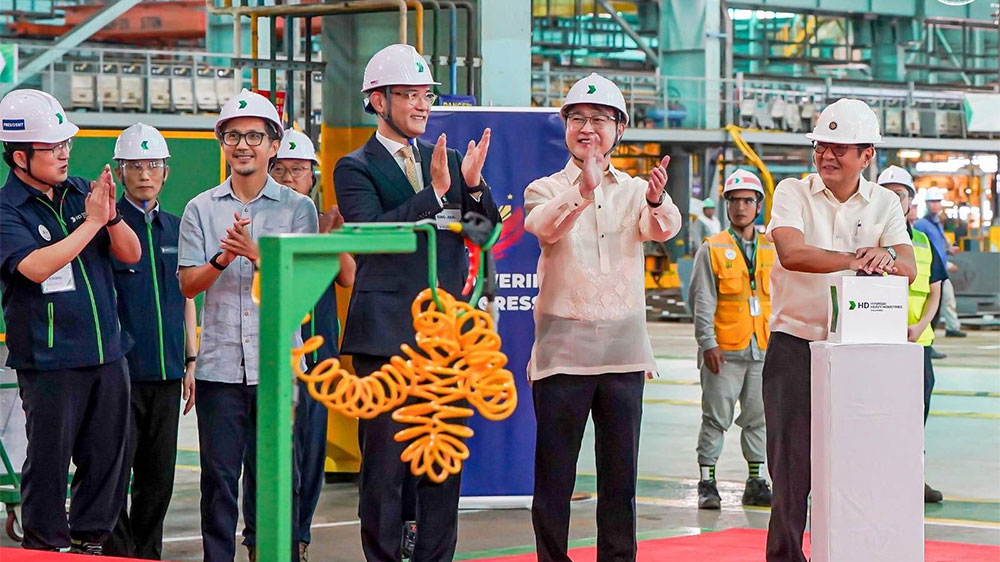President Ferdinand Marcos Jr. vowed on Tuesday to restore the Philippines’ standing in global shipbuilding as he led the revival of Subic’s shipyard in Zambales under HD Hyundai Heavy Industries.
“For decades, even centuries, the Philippines has given the world our finest seafarers. It is only fitting that we also supply the world with excellent vessels to sail on,” Marcos said at the inauguration of HD Hyundai Heavy Industries Philippines Inc. shipyard.
“Today, we begin reclaiming our rightful place among the world’s great shipbuilding nations,” he added, stressing that the revival of shipbuilding means a stronger industry, more livelihood for Filipinos and a better future for the country.
Marcos said combining domestic shipbuilding with the country’s skilled seafaring workforce would make the Philippines a “complete maritime nation.”
From 2014 to 2018, the country produced 1.2 to 2 million gross tons of ships annually—roughly 20 oil tankers or 30 large container ships.
That momentum waned in 2019, when output fell sharply. “Today, we raise the sails once more,” Marcos said, citing Hyundai’s investment that boosted Subic’s capacity from 1.3 million to 2.5 million deadweight tons, doubling output from four or five massive oil tankers to as many as eight.
He said the expansion will employ 4,300 Filipinos by 2030, giving thousands of families steady income.
“Beyond size, the ships we now build can carry higher volumes, boost our exports, and create more jobs for Filipino workers,” he added.
To meet the yard’s manpower needs, Marcos said the Technical Education and Skills Development Authority (TESDA) has committed to train skilled Filipino workers.
TESDA established a Subic training hub with Hyundai in November 2024 and has since offered scholarships and programs in 16 maritime-related fields, including advanced welding courses, to ensure workers meet global shipbuilding standards.





